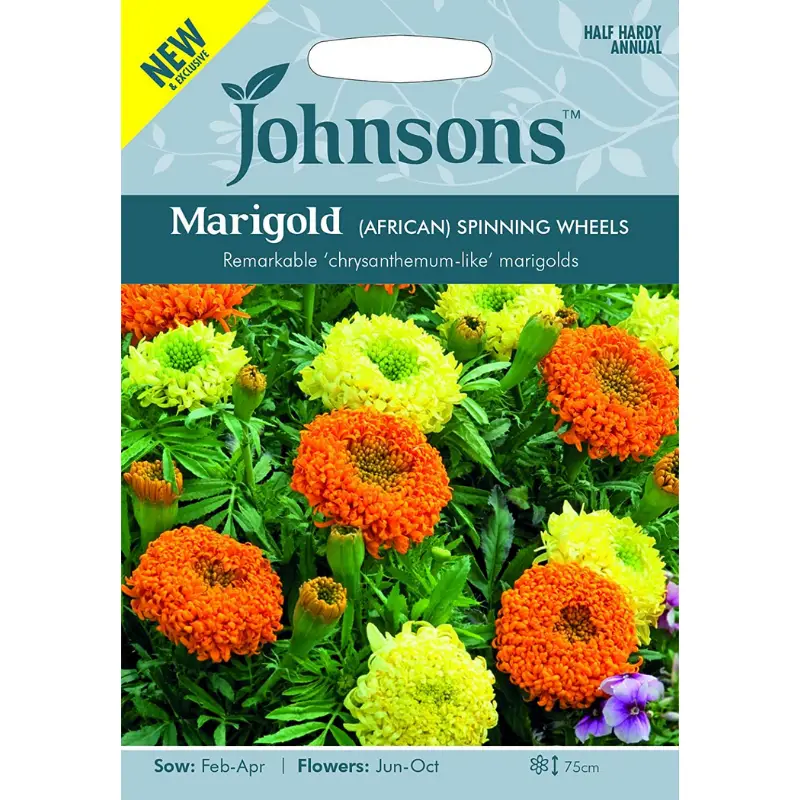Are you improving your garden but concerned about which flowers to plant because you have a dog? Our mission is to help you help and keep your dog safe. To be a responsible dog parent, it is crucial to do your research first. Below is all that you need in one place.
Garden marigolds (Calendula) are widely used as garden plants. The flowers of the flower plants can be eaten or made into tea, and they also have medicinal properties. But can garden marigolds poison your dog?
The marigold plant is not poisonous to dogs, but it can cause some irritation when in contact with the fur and skin of some sensitive dogs. If a dog consumes marigolds, this flower may result in vomiting or diarrhoea. However, all in all, marigolds are not toxic.
Should I plant marigolds?
We know that the marigold plant is not toxic to dogs. However, does your dog often suffer from sensitive skin? If so, then you should not plant marigolds. It will be highly likely that they will react to the marigold plant. Is your dog a known chewer and is known to chew everything in sight?. If so, consumption of this flower may result in an upset stomach and cause vomiting or diarrhoea. So, it will be best to avoid planting marigolds.
Recommended Training: Teach the leave it command. Teaching a dog this command will help you stop them from chewing on things they shouldn’t.
Things to consider
If you can answer yes to any of the questions below, you should not plant marigold.
- Does your dog have sensitive skin?
- Is your dog the type that likes to chew everything?
If you can answer no, let’s move on and learn a bit more about this magical little flower.
Marigolds
Marigolds are a popular flower that can be grown in many different climates. They come in many colours and have various uses, including edible garnish or to attract butterflies.
Planting marigolds is one way to make your garden more beautiful and colourful! If you’re looking for some new plants for your garden, consider planting marigolds today! However, you must think if your puppy or dog often munches on plants in your garden, even though they are mildly toxic, a dog, if they eat enough, can cause vomiting or diarrhoea.
Planting Marigolds
Garden Marigolds are a beautiful addition to any garden. These flowers are easy to grow and come in many colours! You can plant them in the ground or in pots. They also make excellent cut flowers that will last longer if you put them into the water as soon as possible after cutting.
They need the right amount of sun and water, or they will wither away before you know it.
But did you know that there’s more than one type of marigold? There are French, African, and Mexican varieties with different care needs. Find here a good care guide from marigold experts. They go through how to plant, grow and care for your marigolds.
Marigold Toxicity in dogs
If your dog has consumed many marigolds, likely, it won’t be fatal to your dog, So try not to panic! However, at worse, your dog may suffer from a mild spell of vomiting and, or diarrhoea. Keep an eye on your dog, and if the vomiting and diarrhoea are excessive, you will need to speak to a vet because a secondary problem can arise: dehydration. Dehydration in dogs is severe, and your dog may require rehydration therapy. If in doubt, call or visit your veterinary professional.
Symptoms
- Vomiting
- Diarrhoea
- Dehydration
- Loss of appetite
- Lethargic
Skin Irritation (Marigolds)
Marigolds are flowers that have been known for centuries to humans soothe irritated skin. They’re also used in aromatherapy as an anti-inflammatory agent. However, they have a reserve effect and can cause skin irritation to some of us. Skin irritation from marigolds can also occur in our dogs. There is certainly a high possibility if your dog already has sensitive skin and is prone to this, they will react, and it’s not worth the risk.

Johnsons Marigold Seeds (African)
Other flowers that cause potential skin irritation:
- Ragweed
- Chrysanthemums
- Daisies
Conclusion
I hope from the above you can understand if marigolds are suitable for your garden and take into account if your dog is prone to sensitive skin or if they are the type of dog that loves to chew. Now that the weather is warming, it’s time to get out in the garden and enjoy some lovely flowers. But be cautious about the ones you plant.
